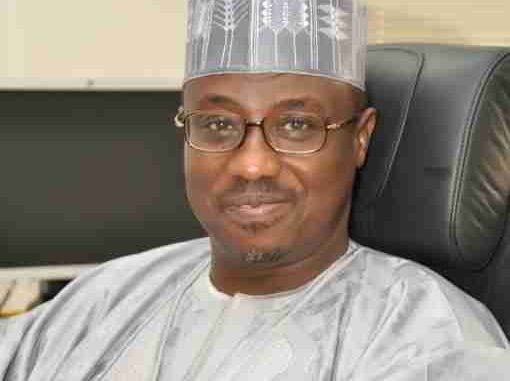
The group managing director of the Nigerian National Petroleum Corporation (NNPC), Dr Maikanti Baru, yesterday dismissed insinuations that the government was planning an upward review of the pump price of Premium Motor Spirit (PMS), commonly referred to as fuel.
He stated this shortly after a closed-door meeting with President Muhammadu Buhari and the minister of state for petroleum, Dr Ibe Kachikwu, at the Presidential Villa, Abuja.
This is coming on the heels of speculations of an imminent fuel price hike due to the increasing foreign exchange rate.
LEADERSHIP recalls that after a meeting last week, NNPC’s past and present GMDs stated that the fuel price of N145 per litre did not reflect the price determining components of the commodity and the fluctuations of the foreign exchange rate.
The NNPC had in a statement, at the end of the meeting, said, “They (the GMDs) noted that the petrol price of N145/litre is not congruent with the liberalisation policy especially with the foreign exchange rate and other price determining components such as crude cost, Nigerian Ports Authority charges, etc remaining uncapped.”
Recall also that on May 11, 2015, the federal government increased the pump price of petrol from N86.60 to N145.
However, after the meeting with President Buhari yesterday, Baru who initially refused to speak to State House correspondents on the issue, when probed further, simply said, “The NNPC has no plans of increasing the price of fuel.”
He referred journalists to the Petroleum Products Pricing and Regulatory Agency (PPPRA) for any clarification.
Similarly, Kachikwu declined to speak and referred journalists to the GMD of the NNPC for any questions on the fuel price increase.
The minister, however, disclosed that there was no memo before the federal government asking for a review of the price.
The NNPC in a reaction, yesterday, confirmed that the former GMDs had expressed views on the current fuel price.
The NNPC spokesperson, Garba Deen Mohammed, in a statement, however, said the position of the former GMDs was their personal opinion, which was not binding on government.
“The GMD was only consulting stakeholders and the former GMDs of the Corporation are important stakeholders. Besides, NNPC is a player in the oil sector, like many other companies, though PPPRA is in the best position to talk about fuel prices,” he added.
Meanwhile, the minister of information and culture, Alhaji Lai Mohammed, and the chief executive officer, Nigeria Liquefied Natural Gas (NLNG), Mr Tony Attah, have described the proposed amendment of the NLNG Act of 2014 as a threat to the economy as it will send a negative signal to investors globally.
Speaking during a courtesy visit to the minister in Abuja, yesterday, Attah, who doubles as the managing director, NLNG, expressed fear that if the proposed amendment of the NLNG Act sails through, many oil companies and international lenders would no longer have confidence in Nigeria.
“We have issues with our legislators as we speak. There is a proposal on the floor of the National Assembly to repeal the Act of the NLNG. This will not do well for Nigeria’s economy. This attempt by the legislators will in turn affect the country’s revenue negatively. Repealing this Act will reduce investment in this country,” he said.
Speaking on the successes and interventions of state oil firm in the last fewer years, he said: “In the past five years, we have created huge revenue to Nigerian. We have contributed over N20 billion to Nigeria in the past five years. We also act on request to reduce the price of kerosene; we also have contributed to six universities across the six geo political zones in the country.”
On his part, the minister said he was optimistic that the National Assembly would not act on such amendment.
Mohammed described the intended action as an adventure in the wrong direction, saying that such efforts could lead to “capital flight out of Nigeria or lack of confidence in investing in Nigeria.”
He said the effort to save the NLNG is like saving Nigeria, adding that the future of gas is even rosier than that of crude oil.
“If adopted, it will be sending a negative signal to the investment world. One thing investors want is predictability. Investors behave like monks; if you affect one, you affect all.
“We have a patriotic National Assembly that will not do what will lead to hampering investment in Nigeria,” he added.
